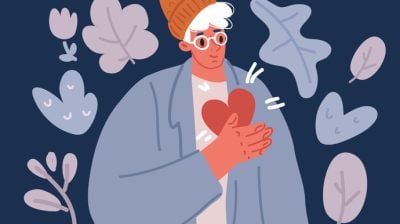’13 Reasons Why’ is not for people with mental health issues
This contributor would not recommend that others watch the show

13 Reasons Why is a Netflix drama based on the 2007 novel by Jay Asher. The series revolves around high school student Hannah Baker. After Hannah’s suicide, her classmate Clay Jensen receives a box of cassette tapes. The seven double-sided cassette tapes contain 13 Reasons Why she took her own life.
When I finished it, I immediately wished I hadn’t watched it. I thought, this show is not for me. This show is not for people who have been depressed or suicidal, it’s not for people who have been sexually assaulted. This is not a show for anyone who is close to the subject matter and I wish that I had known that before I pressed play.
The first time I attempted suicide, I was 15 years old. I was being bullied horrifically and although I had made some friends outside of school, I didn’t feel like I could open up to anyone. I know now that this suicide attempt was not only because I was being bullied.
Suicide is caused by mental illness and although other factors are often involved, it is rarely ever anyone’s fault. 13 Reasons Why does not acknowledge this or offer any lifelines.
As someone who has struggled with mental illness, I found 13 Reasons Why to be realistic and incredibly dark. There is little hope in the world of this show and I felt especially triggered by the hauntingly familiar world. There is one particular line that felt like the most accurate depiction of depression I have ever heard in TV or film. Clay is fighting his grief over Hannah’s death and struggling to deal with listening to the tapes she has left him. He is letting his personal appearance slip and when asked by his parents if he has showered today he responds:
‘I turned the water on just now and I thought about it all. The whole thing. Taking clothes off, dealing with hair. We shower like every day, it’s just a lot.’
My experiences were very similar to those experienced by Hannah, so much so that I felt compelled to keep watching even after I realised that this was not going to be a positive viewing experience for me.
The show’s approach to mental illness does not present a full picture. In a show which focuses on a teen’s suicide, it is particularly shocking that depression or mental illness are not mentioned. Throughout the show there are signs of Hannah’s mental illness, including a drastic haircut and a loss of interest in social activities and hobbies. There are also strong hints at her classmate Alex’s mental illness, including references to taking his own life.
The discussion that this show has caused is incredible, with mental health professionals, counsellors and parents coming out against the series. It’s important that we discuss what is right and wrong with this show. Banning it is pointless. I don’t know about you but if something is banned, I am much more likely to want to watch it.
When I finished the show, it was about 9am. I had stayed up all night. I immediately contacted a close friend who suffers from depression and self-injury to tell her about my experience with the show, advising that she shouldn’t watch it. I watched it the day it came out and was, I admit, surprised at the lack of trigger warnings in relation to the graphic and triggering depictions of mental illness that are portrayed. It is worth saying that as of May 2nd, Netflix have promised to add additional trigger warning, stating:
“Moving forward, we will add an additional viewer warning card before the first episode as an extra precaution for those about to start the series and have also strengthened the messaging and resource language in the existing cards for episodes that contain graphic subject matter.”
This show is not for me. Maybe if you have never been in that position, if you don’t know exactly how it feels to be Hannah or Alex, then this will be educational for you. It feels like it was written for people who haven’t suffered through mental illness but want to know more about it. It may help parents who want to know what it’s like to be a teenager dealing with depression, bullying or sexual assault, but if you have experience of mental illness, self-harm, suicide or sexual assault then I would advise you not to watch it.






